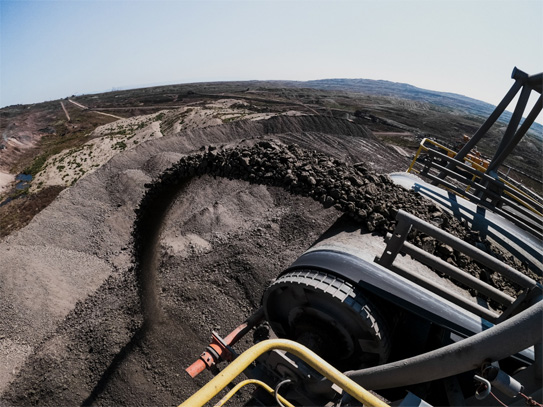The vast landscape of Brazil holds hidden treasure crucial to modern technology – rare earth elements.
According to the US Geological Survey, Brazil boasts the world's third-largest reserves of rare earths, standing at a staggering 21 million tonnes. This places the country behind only China and Vietnam in this critical resource. However, despite its potential, Brazil's rare earth industry is currently in a state of dormancy, producing only a fraction of what it could contribute to the global market.
China currently dominates the rare earth supply chain, being the sole nation with a fully vertically integrated system for rare earth magnets. Recent Chinese export controls on semiconductor metals have sparked concerns about the security of supply globally. Memories of a political dispute 13 years ago that disrupted Chinese rare earth exports and triggered a global market panic have resurfaced.
Brazil currently produces around 80 tonnes of rare earths, a fraction of its estimated potential. The discrepancy is exacerbated by a lack of financing, with just 7% of global exploration budgets for nickel and rare earth elements allocated to Latin America, according to the International Energy Agency. The Brazilian mining industry faces challenges, including insufficient geological mapping, environmental concerns in protected areas, and slow permit acquisition processes.
However, signs of awakening are emerging. Requests for mineral research have surged, particularly in the state of Goiás, reflecting growing interest in exploring Brazil's rare earth potential. The mining association is developing a strategic minerals plan, aiming to present it to the federal government for support.
Unlocking hidden treasures
Several projects are underway in Brazil, with Canadian explorers Appia Rare Earths & Uranium Corp (CSE:API, OTCQX:APAAF) and Aclara Resources Inc (TSX:ARA, OTC:ARAAF) leading initiatives in Goiás. These projects aim to tap into ionic clay deposits, which showcase geological similarities to Chinese deposits, a rarity outside of China.
Earlier this week, Aclara unveiled a maiden mineral resource estimate for its Carina Module project in Brazil, revealing an initial Inferred mineral resource of 168 million tonnes with a grade of 1,510 ppm total rare earth oxide (TREO) and 477 ppm desorbable rare earth oxide (DREO). Aclara aims to leverage its patented metallurgical recovery process, combining competitive costs with superior environmental qualities, and is set to complete a Preliminary Economic Assessment (PEA) by January 2024, with sample production expected in late 2023 and early 2024 at its pilot plant in Chile.
"I see Brazil fully committed to becoming a significant player in critical minerals,” Aclara CEO Ramon Barua told Proactive.
Barua said that the authorities in Goias are enthusiastic and optimistic about the project, and dedicated to attracting investments and fostering job creation in the region.
“Brazil has an amazing portfolio of minerals that will be crucial in the next decade and has a clear strategy to ensure that the country captures this unique opportunity,” Barua added.
Goias isn’t the only state with plentiful rare earths. In Minas Gerais, Meteoric Resources NL (ASX:MEI) and Rainbow Rare Earths Ltd (LSE:RBW, OTC:RBWRF) are making strides toward pre-feasibility studies and resource assessments, demonstrating the diverse geography of Brazil's rare earth potential.
Overcoming challenges
Despite progress, challenges persist. Brazil's rare earth industry faces environmental concerns, slow regulatory processes, and fierce global competition dominated by China. To unlock its full potential, Brazil must strategize and invest wisely.
Rare earth elements are indispensable in modern technology, from smartphones to electric vehicles and wind turbines. The demand for rare earths is escalating, driven by emerging economies and the push for clean energy technologies. Brazil has the opportunity to supply the clean technology revolution, provided it addresses challenges in extraction, transportation, and environmental impact.
Brazil's rare earth reserves have attracted global attention, yet mining regulations and environmental concerns hinder investments. The government's efforts to promote sustainable development and reduce dependence on imports create a domestic demand for rare earths. With proper regulation, Brazil can leverage its resources for global supply while supporting its economic growth goals.
Overcoming obstacles requires concerted efforts. Investing in research and development, updating regulatory frameworks, and improving infrastructure are key strategies. By developing innovative extraction technologies, attracting foreign investments through clear regulations, and enhancing infrastructure, Brazil can position itself as a major supplier in the rare earth market.
Despite challenges, Brazil's rare earth industry holds immense potential. Strategic steps, such as policies to attract foreign investments and promote sustainable practices, indicate a positive trajectory. And the imminent listing of Australian mining magnate Gina Rinehart’s Brazilian Rare Earths on the ASX reflects growing interest, with companies eyeing strategic acquisitions.
The industry's future hinges on navigating challenges, but Brazil's rare earth giant is stirring, ready to make a significant impact on the global stage. "Source: Proactive Investors"




